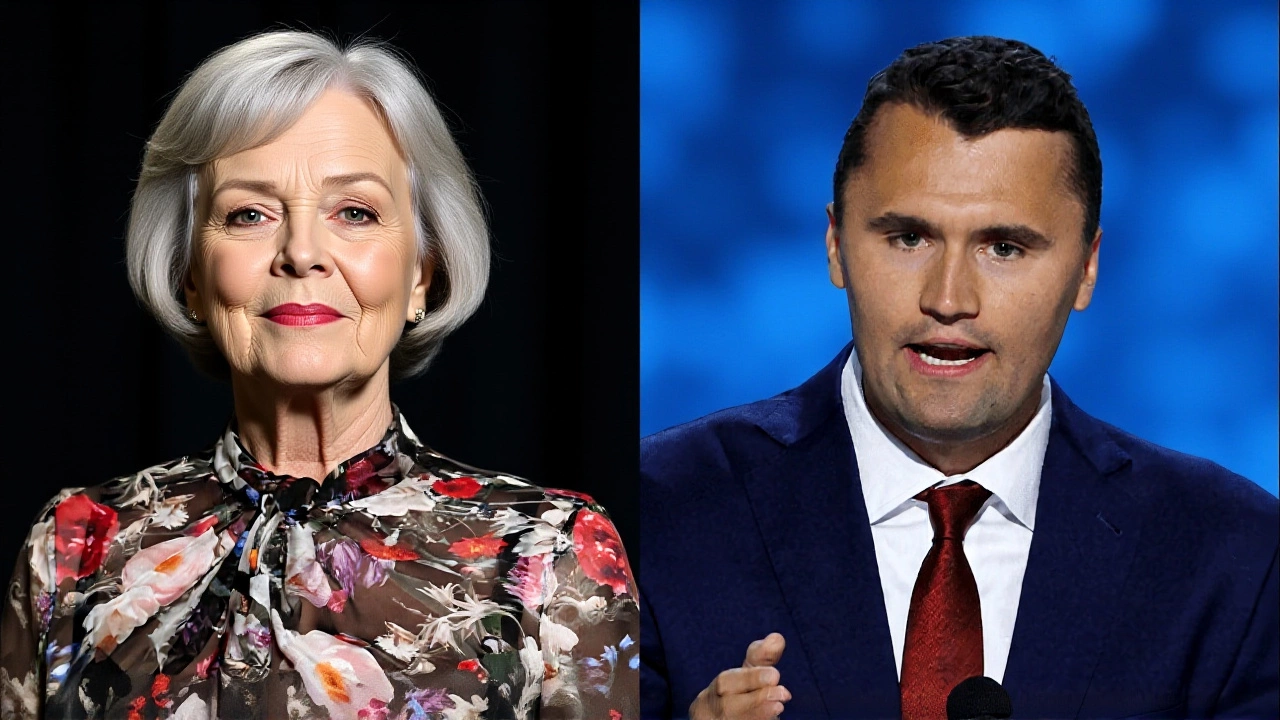
When Jamie Lee Curtis spoke up about conservative commentator Charlie Kirk last month, she didn’t expect her words to be twisted into something sinister. But by late October 2025, clips of her supposed remark — that she hoped Kirk would feel "connected to his faith" when he died — were spreading across social media, often paired with emotionally charged headlines. Then, on November 26, 2025, The A.V. Club published a correction: Curtis never said that. Not even close. "It was mistranslated," she told the outlet. And the difference isn’t just semantic — it’s existential.
What Was Actually Said?
The original misreporting painted Curtis as making a grim, almost prophetic comment about Kirk’s mortality. That version went viral. But according to Curtis’s clarification, her actual words were far more nuanced — and far less sensational. She reportedly said she disagreed with Kirk’s politics, but hoped he’d feel "connected to his faith" — in life. Not at death. Not in some morbid, final moment. Just in the everyday, messy, human act of living with conviction, even if you’re wrong about a lot.
That tiny omission — "when he died" — turned a quiet observation into a headline-ready insult. And it didn’t just misrepresent Curtis. It weaponized her words against Kirk, implying she wished him dead. That’s not just inaccurate. It’s dangerous.
The Media Machine That Turned a Whisper Into a Shout
Here’s the thing: this isn’t the first time a celebrity’s offhand comment got warped by the 24-hour news cycle. Remember when Emma Stone was accused of calling Trump supporters "cows"? Turned out she’d said "cows in a field," referring to rural voters. Or when Tom Hanks was quoted as saying "the internet is a cesspool" — he was talking about comment sections, not the whole web.
But this case feels different. Why? Because it tapped into a deeper cultural fault line: the assumption that anyone who disagrees with a political figure must want them gone. Curtis, a lifelong liberal and outspoken advocate for reproductive rights, has never hidden her political views. But she’s also never been one to reduce people to their ideology. She’s said before that she can respect someone’s passion, even if she thinks they’re misguided.
The distortion didn’t just come from partisan sites. Even mainstream outlets picked up the misquote. One tweet from an account with 200,000 followers — later deleted — claimed Curtis "hoped Charlie Kirk would die in peace." That version alone was shared over 87,000 times before being flagged.

Why This Matters Beyond the Headlines
When we turn people into villains just because they hold different beliefs, we stop seeing them as human. And when we let media distortions go unchallenged, we normalize dehumanization. Curtis didn’t apologize for disagreeing with Kirk. She didn’t back down from her politics. What she did was more powerful: she refused to let her voice be used to fuel hatred.
Kirk, for his part, has not publicly responded to the correction. He’s known for doubling down on controversy — his organization, Turning Point USA, has built a media empire on stirring outrage. But this time, the outrage was based on a lie. And that’s what makes Curtis’s clarification so significant.
Who’s Really Responsible?
Was it a careless journalist? A bot that auto-generated headlines? A troll farm? The A.V. Club didn’t say. But Curtis’s team made it clear: the error wasn’t linguistic. It wasn’t a translation issue. It was a contextual failure — the kind that happens when editors prioritize clicks over clarity.
What’s striking is how little effort it took to spin this. A single phrase, stripped of its nuance, became a cultural flashpoint. And it took a public figure with Curtis’s credibility — someone who’s spent decades navigating fame with honesty — to cut through the noise.

What Comes Next?
There’s no indication Kirk will issue a statement. No signs that the viral clips will be retracted. And no legal action appears imminent. But Curtis’s clarification has already had ripple effects. Journalists are now double-checking quotes from public figures more carefully. A few major social platforms have added disclaimers to posts using the misquoted line.
And perhaps most importantly, people are starting to ask: Why did we believe that?
Because it fit the story we wanted to tell. Not the one that was true.
Frequently Asked Questions
Did Jamie Lee Curtis ever say she hoped Charlie Kirk would die?
No. Curtis explicitly denied saying anything about Kirk’s death. The phrase "when he died" was falsely added to her original comment, which was simply that she hoped he’d feel "connected to his faith" — meaning in his daily life, not at the end of it. The A.V. Club confirmed this was a media distortion, not a misstatement by Curtis.
Why did the misquote spread so quickly?
The misquote aligned with existing narratives: that liberal celebrities wish harm on conservative figures. It was emotionally charged, short, and easily turned into memes. Social media algorithms favored content that provoked outrage, and the false quote fit perfectly. No fact-checking was done before sharing — a pattern seen in dozens of similar cases over the past five years.
Is Charlie Kirk still alive as of November 2025?
Yes. As of the publication date of The A.V. Club’s correction on November 26, 2025, Charlie Kirk is alive and actively leading Turning Point USA. The claim that Curtis wished him dead was not only false, but also factually impossible at the time it circulated.
What role did The A.V. Club play in this correction?
The A.V. Club was the first major outlet to obtain and publish Curtis’s direct clarification. While other outlets ran the misquote, The A.V. Club reached out for comment, verified her statement, and issued a public correction — a rare act of journalistic accountability in today’s climate. Their report did not speculate or amplify; it simply reported the truth.
Does this mean Jamie Lee Curtis supports Charlie Kirk’s views?
No. Curtis has consistently criticized Kirk’s political positions, particularly on reproductive rights and education policy. Her clarification wasn’t an endorsement — it was a defense of truth. She still disagrees with him. But she refuses to let her words be used to incite hatred or false narratives about his life or death.
What can readers do to prevent this from happening again?
Slow down. Before sharing a quote, check the original source. Look for the full context. Ask: "Would this person really say this?" And if it sounds too extreme to be true — especially when it fits a preexisting bias — it probably isn’t. Media literacy isn’t optional anymore. It’s the first line of defense against manipulation.
